
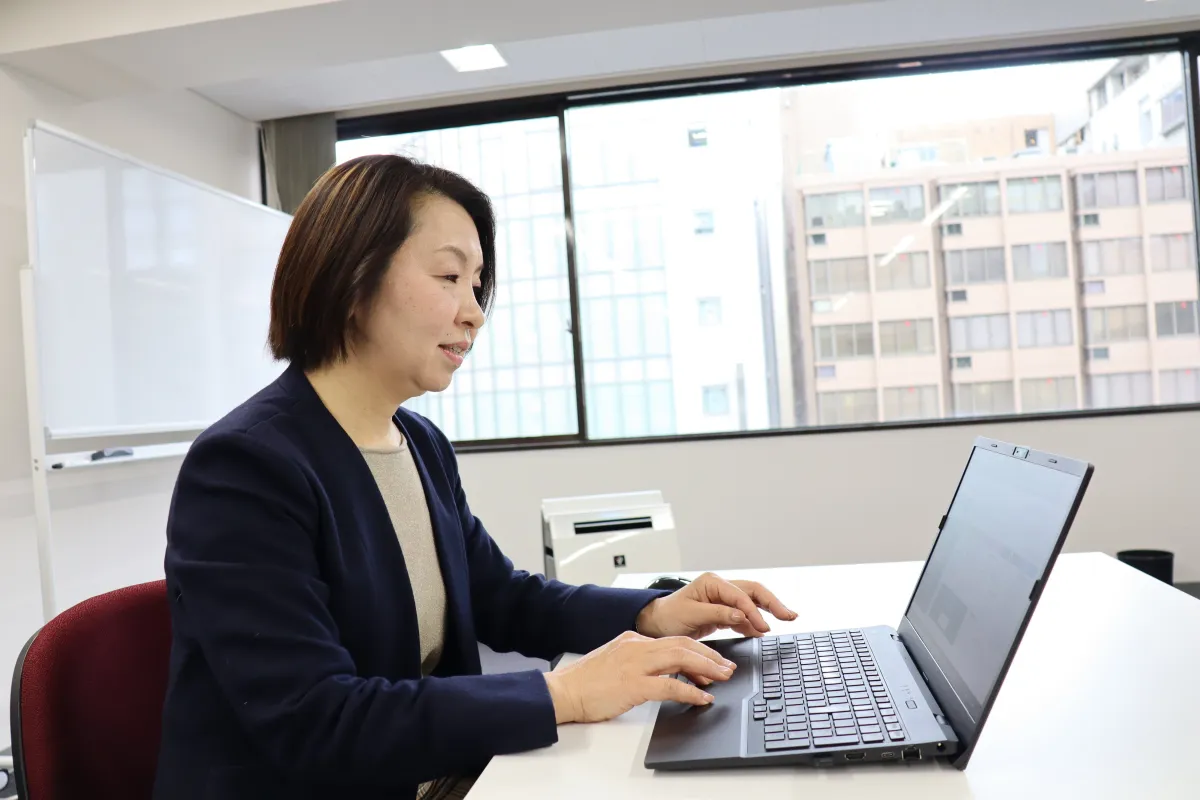
Transforming Home Care with Remote Support: eWeLL's Innovative Nursing Solutions
In recent years, the demand for efficient at-home healthcare has surged, pressing the healthcare industry to rethink traditional nursing approaches. Evolving from mere digitization to a comprehensive digital transformation (DX), companies like eWeLL are introducing groundbreaking models that promise to enhance both nursing quality and operational efficiency.
Founded in Osaka, eWeLL Inc. focuses on improving home healthcare through innovative solutions and efficient remote support. Their key project, the ‘Inaka-n-go Project,’ addresses the pressing concerns of nursing in medically underserved areas. Notably, the Nanaru Home Nursing Station, managed by Tekix Co., has been at the forefront of implementing and operationalizing these digital solutions at its twelve locations across Japan.
While the home nursing sector continues to grow, it simultaneously faces significant structural challenges. For instance, nurses often juggle not only their core nursing responsibilities but also administrative tasks like recordkeeping and handling calls. Particularly daunting are the billing processes tied to complex medical and nursing care insurance systems.
A 2022 survey by the Japan Nursing Association revealed that each home nursing station has an average of only 0.7 administrative staff per station. This starkly contrasts with the one in four ratio seen in clinics, leaving nursing stations burdened with excessive administrative duties. Such structural issues increase the workload on nurses, affecting both care quality and hampering business scalability.
To tackle these challenges, Nanaru Home Nursing Station is leveraging technology to innovate traditional nursing practices. They aim to create an environment where nurses can focus entirely on their primary roles, ensuring that the community can rely on quality care without distractions from administrative work.
With a ‘Digital First’ approach since its inception, Nanaru has centralized back-office operations for all twelve branches—employing 48 nurses as of May 2025—at its head office in Osaka. The overarching goal? To enhance both operational efficiency and the quality of nursing. The management recognizes that securing and training administrative staff is notoriously challenging. By concentrating operations at the headquarters, they have cultivated a specialized support system that improves the quality of output while fostering knowledge retention within the organization.
The back office employs a dedicated team for tasks like billing, medical record management, and patient communication. This effectively liberates nurses from clerical duties, allowing them to dedicate their time and expertise to nursing, which ultimately leads to cost savings, fewer billing errors, and strengthened governance.
In addition to the physical distance challenges, real-time interactive platforms facilitate effective information sharing between the headquarters and the nursing stations, ensuring seamless communication and support.
The true impact of the centralized digital operations is particularly evident in the comprehensive remote support provided by experienced staff. The headquarters constantly monitors patient progress and nursing records in real time, thereby facilitating timely interventions for emergency scenarios or end-of-life care. This visible information transfer enables proactive support from headquarters.
For example, if staff are on night calls and show signs of fatigue, they can receive timely recommendations for workload adjustments. When delicate decisions are required in end-of-life care, instant advice from experienced professionals is just a message away. This support system diminishes the burden on on-site staff, allowing them to focus on delivering high-quality care confidently.
Importantly, such a robust system also attracts nurses, offering them a fulfilling and manageable work environment. This draws both novice nurses aiming to develop their skills and seasoned professionals seeking a nurturing atmosphere. Ultimately, this leads to a reliable home nursing service that elevates the quality of patient care and contributes positively to community health.
As populations in rural areas decline, access to healthcare becomes increasingly problematic. However, by concentrating administrative expertise at headquarters, nursing staff can focus on recruiting and developing skilled professionals in these underserved regions. Using ICT, specialized knowledge is efficiently shared with remote locations, allowing for high-quality home nursing that was previously unattainable.
At the core of these advancements lies the iBow electronic medical record system, specifically designed for home nursing. Since its implementation in 2017, the system has become integral to daily operations across all branches.
The system fosters real-time information sharing, allowing immediate verification of patient records and nursing notes from the headquarters. With customizable features that integrate unique protocols into its framework, iBow helps standardize operations without sacrificing quality. Its user-friendly interface allows even staff with limited ICT experience to quickly adapt.
Using AI technology strategically promotes critical thinking and enhances staff capabilities by providing insights and analysis based on recorded data. As a result, staff can visually track various nursing conditions, making collaboration between on-site nurses and centralized support seamless.
The remote support operating model at Nanaru Home Nursing Station has proven effective, yielding reductions in labor costs while enhancing service quality and increasing visit frequency. Their goal is to leverage cutting-edge technologies like iBow and advanced AI to further expand their service area and elevate nursing standards moving forward.
In the words of Vice President Kumiko Katsuma, "When patients face prolonged home recovery, they shouldn't have to compromise their quality of life. eWeLL is committed to supporting a healthier community by empowering nurses to fully concentrate on delivering top-notch care, ensuring that every patient and their family feel the comfort and assurance they deserve during their healthcare journey."
eWeLL's role as a ‘platform for home healthcare’ is pivotal in achieving sustainable nursing operations as they assist innovative initiatives like Nanaru’s with their digital vision, aiming to better the lives of those in home-based recovery throughout Japan.
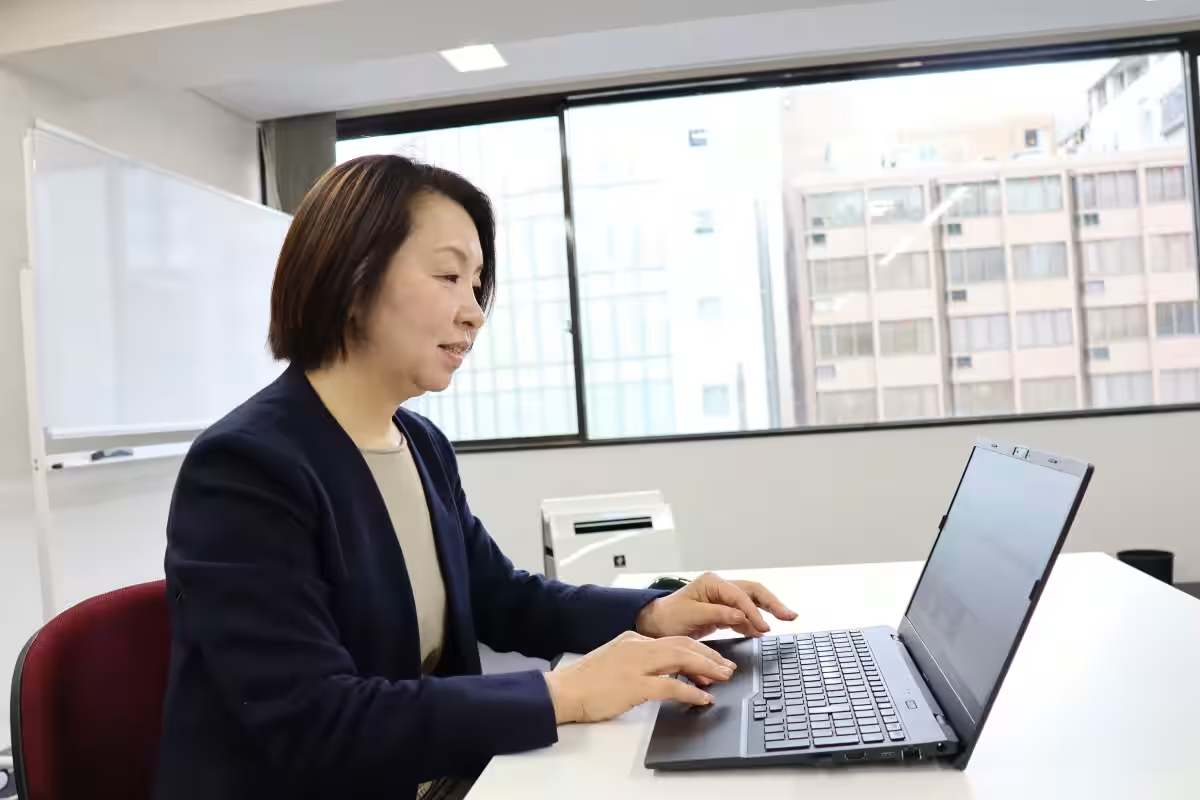
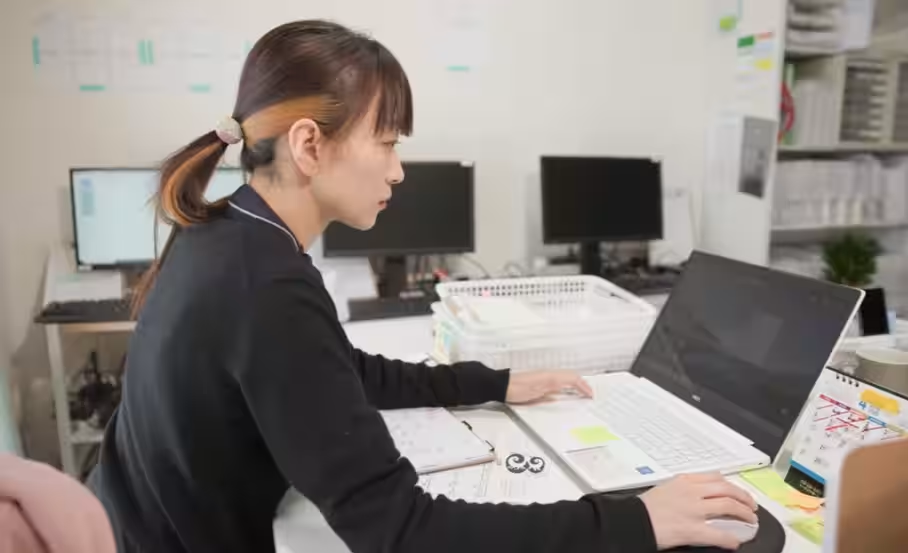
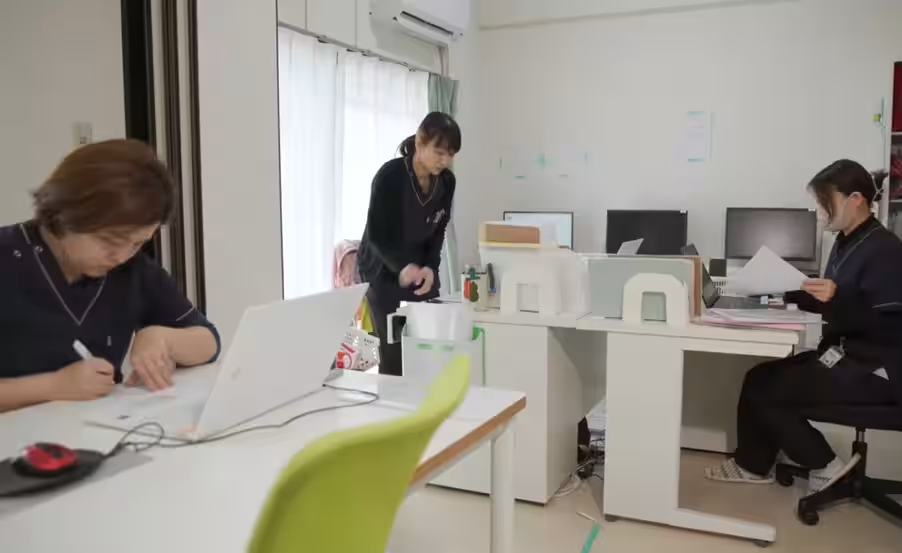
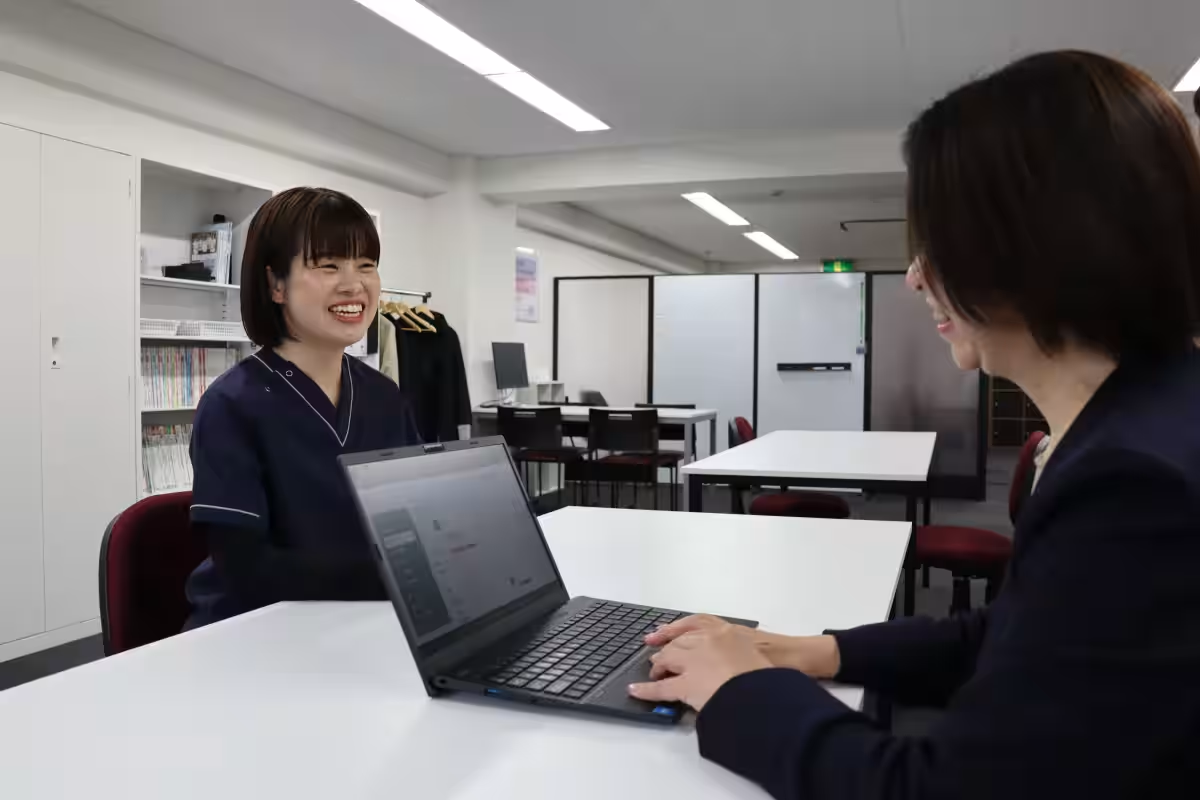
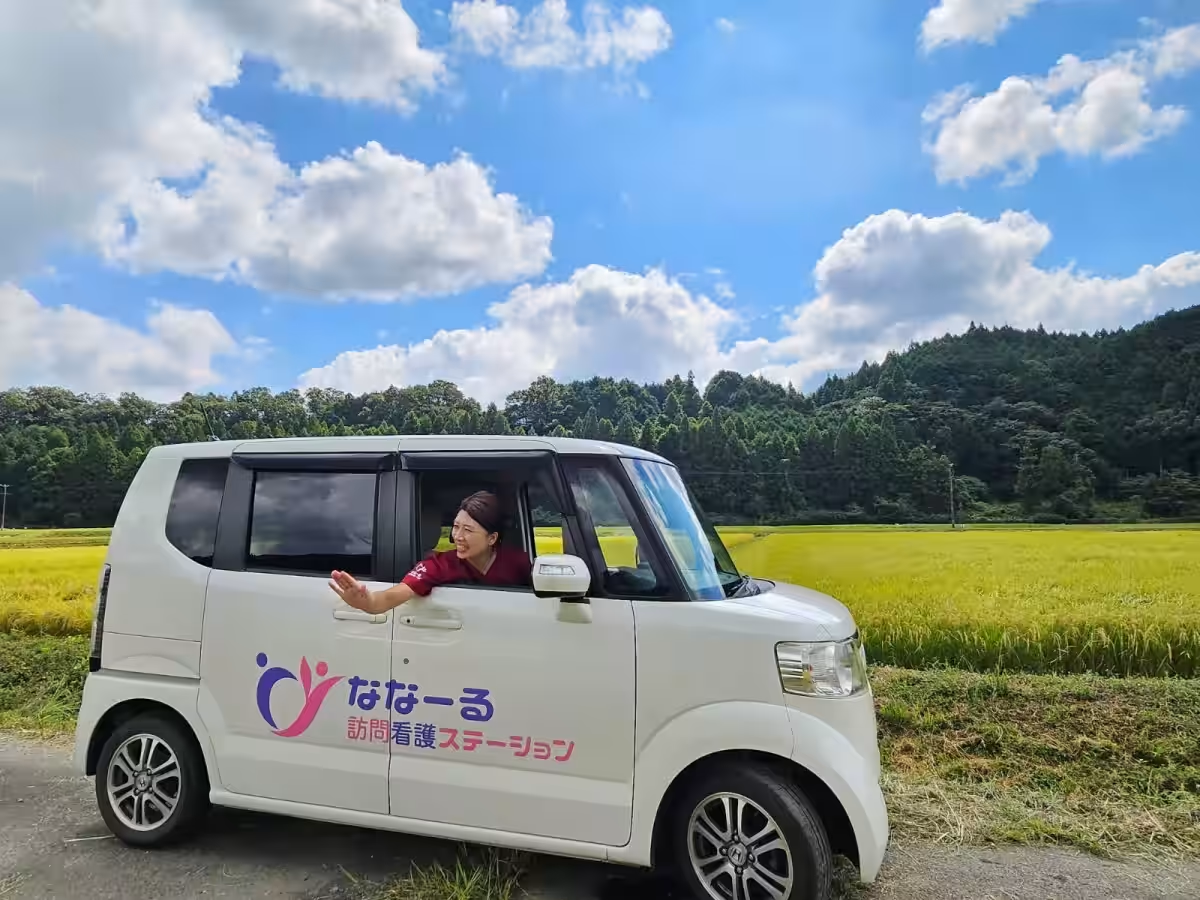
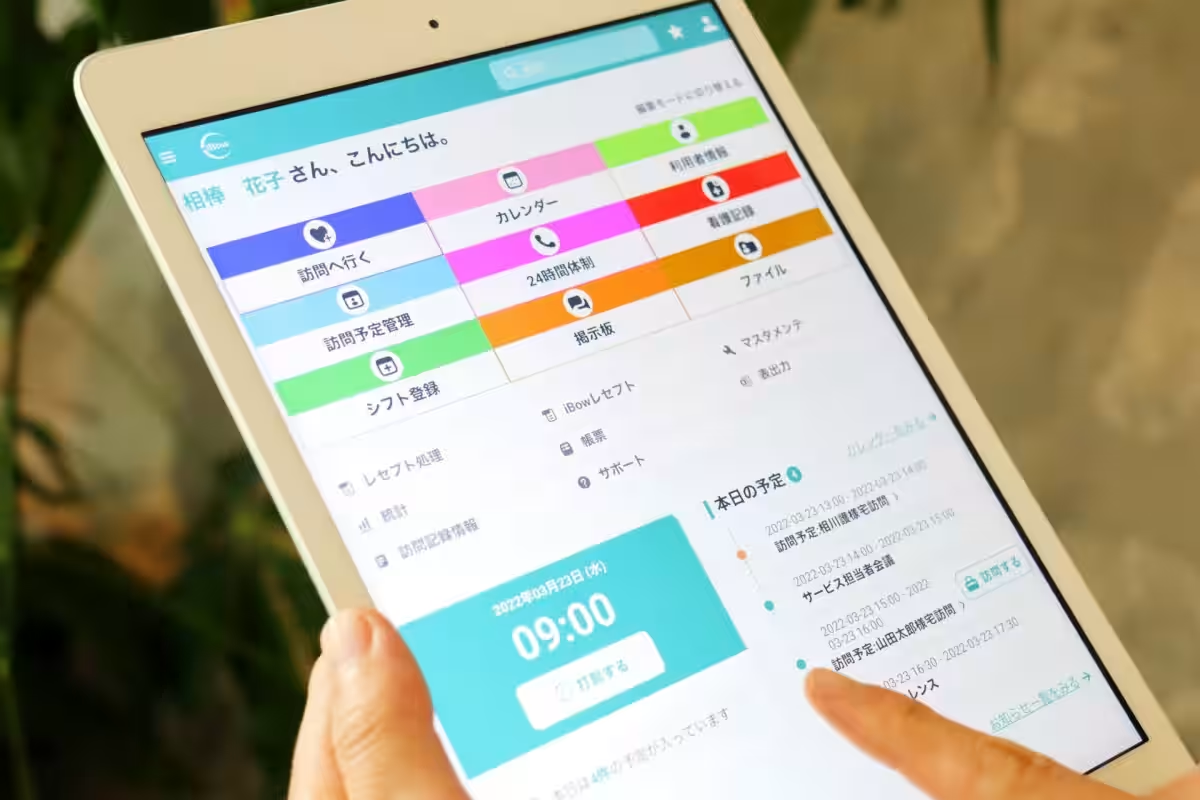
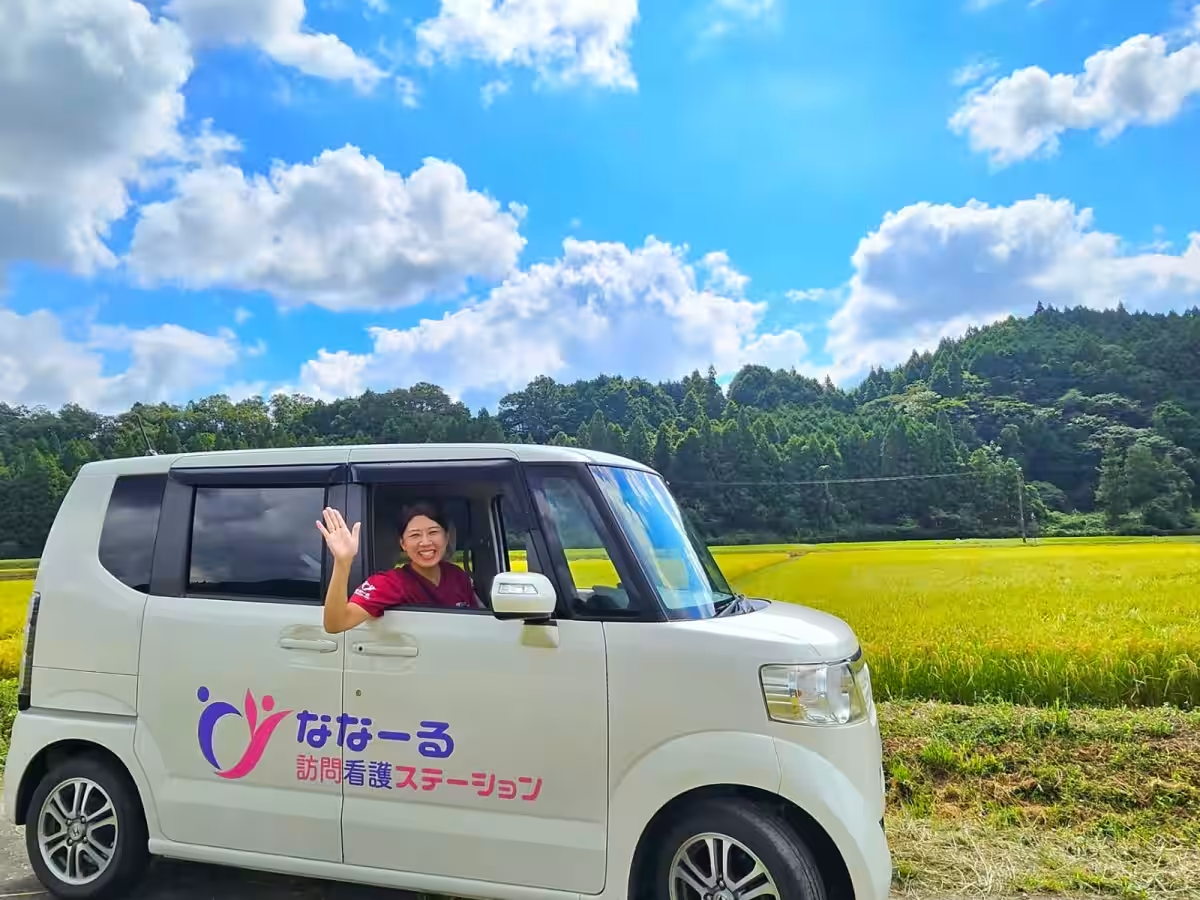

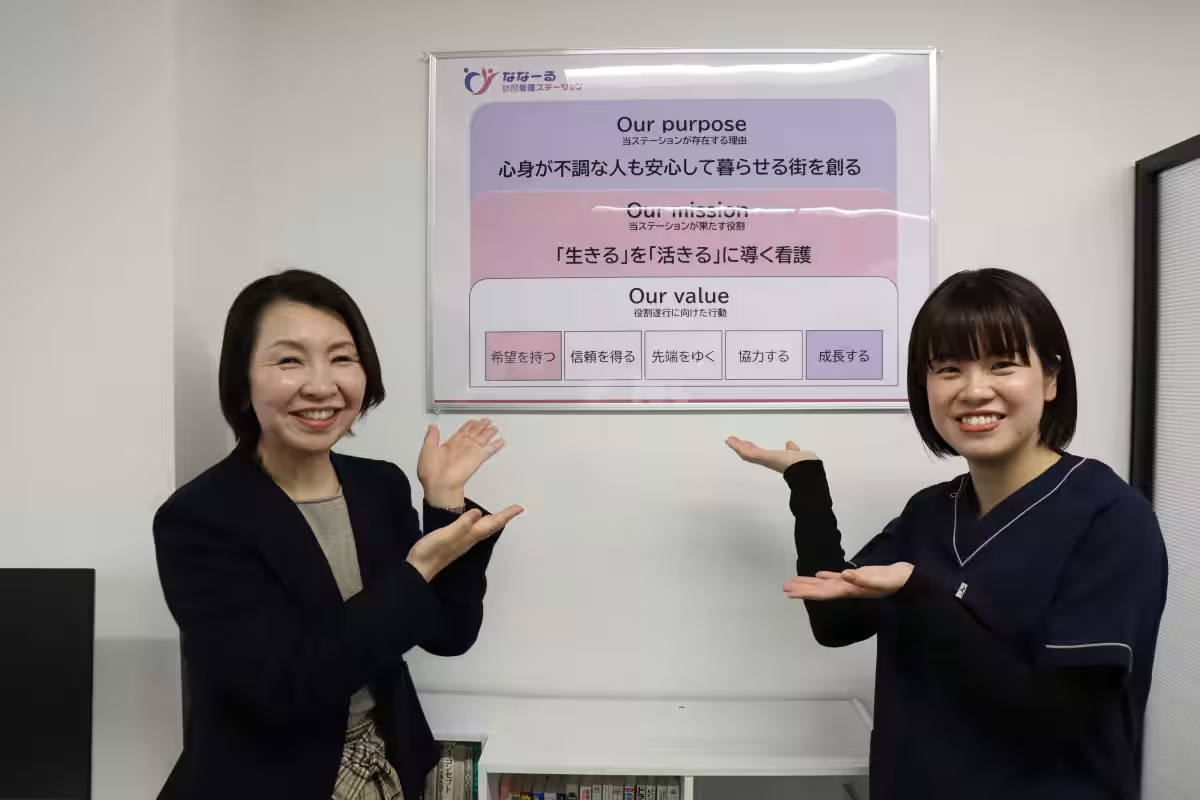
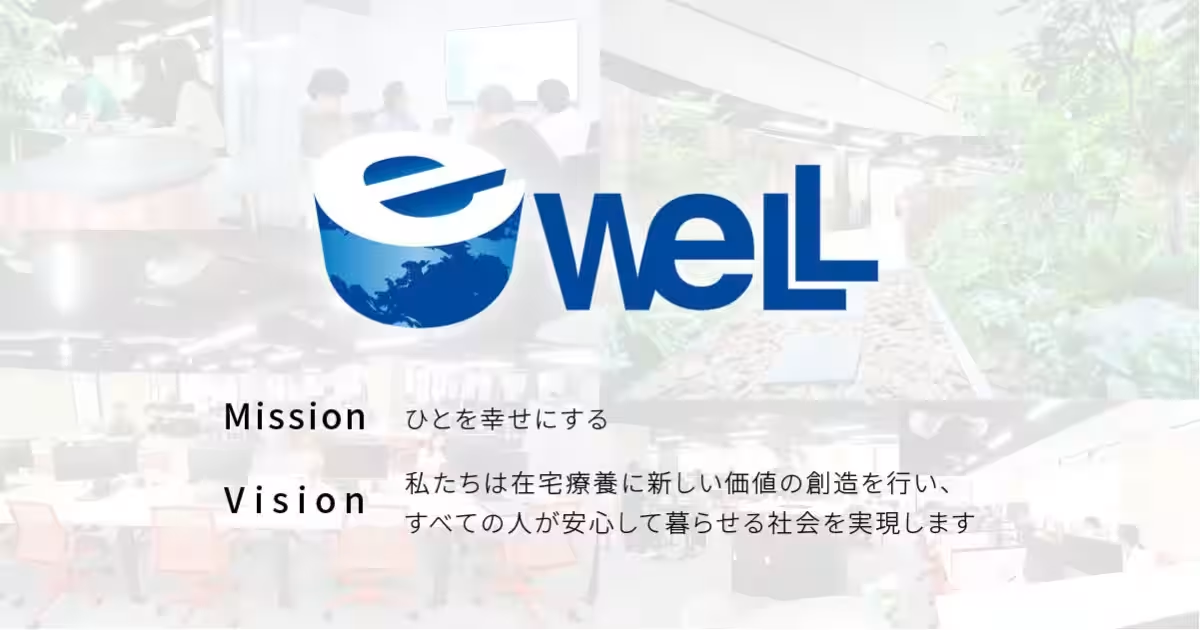
Founded in Osaka, eWeLL Inc. focuses on improving home healthcare through innovative solutions and efficient remote support. Their key project, the ‘Inaka-n-go Project,’ addresses the pressing concerns of nursing in medically underserved areas. Notably, the Nanaru Home Nursing Station, managed by Tekix Co., has been at the forefront of implementing and operationalizing these digital solutions at its twelve locations across Japan.
The Current State of Home Nursing
While the home nursing sector continues to grow, it simultaneously faces significant structural challenges. For instance, nurses often juggle not only their core nursing responsibilities but also administrative tasks like recordkeeping and handling calls. Particularly daunting are the billing processes tied to complex medical and nursing care insurance systems.
A 2022 survey by the Japan Nursing Association revealed that each home nursing station has an average of only 0.7 administrative staff per station. This starkly contrasts with the one in four ratio seen in clinics, leaving nursing stations burdened with excessive administrative duties. Such structural issues increase the workload on nurses, affecting both care quality and hampering business scalability.
Nanaru Home Nursing Station’s Strategy
To tackle these challenges, Nanaru Home Nursing Station is leveraging technology to innovate traditional nursing practices. They aim to create an environment where nurses can focus entirely on their primary roles, ensuring that the community can rely on quality care without distractions from administrative work.
With a ‘Digital First’ approach since its inception, Nanaru has centralized back-office operations for all twelve branches—employing 48 nurses as of May 2025—at its head office in Osaka. The overarching goal? To enhance both operational efficiency and the quality of nursing. The management recognizes that securing and training administrative staff is notoriously challenging. By concentrating operations at the headquarters, they have cultivated a specialized support system that improves the quality of output while fostering knowledge retention within the organization.
Streamlining Operations With Centralization
The back office employs a dedicated team for tasks like billing, medical record management, and patient communication. This effectively liberates nurses from clerical duties, allowing them to dedicate their time and expertise to nursing, which ultimately leads to cost savings, fewer billing errors, and strengthened governance.
In addition to the physical distance challenges, real-time interactive platforms facilitate effective information sharing between the headquarters and the nursing stations, ensuring seamless communication and support.
Enhancing Nursing Quality via Telehealth
The true impact of the centralized digital operations is particularly evident in the comprehensive remote support provided by experienced staff. The headquarters constantly monitors patient progress and nursing records in real time, thereby facilitating timely interventions for emergency scenarios or end-of-life care. This visible information transfer enables proactive support from headquarters.
For example, if staff are on night calls and show signs of fatigue, they can receive timely recommendations for workload adjustments. When delicate decisions are required in end-of-life care, instant advice from experienced professionals is just a message away. This support system diminishes the burden on on-site staff, allowing them to focus on delivering high-quality care confidently.
A Brighter Future for Community Healthcare
Importantly, such a robust system also attracts nurses, offering them a fulfilling and manageable work environment. This draws both novice nurses aiming to develop their skills and seasoned professionals seeking a nurturing atmosphere. Ultimately, this leads to a reliable home nursing service that elevates the quality of patient care and contributes positively to community health.
As populations in rural areas decline, access to healthcare becomes increasingly problematic. However, by concentrating administrative expertise at headquarters, nursing staff can focus on recruiting and developing skilled professionals in these underserved regions. Using ICT, specialized knowledge is efficiently shared with remote locations, allowing for high-quality home nursing that was previously unattainable.
Innovative Electronic Medical Record System: iBow
At the core of these advancements lies the iBow electronic medical record system, specifically designed for home nursing. Since its implementation in 2017, the system has become integral to daily operations across all branches.
The system fosters real-time information sharing, allowing immediate verification of patient records and nursing notes from the headquarters. With customizable features that integrate unique protocols into its framework, iBow helps standardize operations without sacrificing quality. Its user-friendly interface allows even staff with limited ICT experience to quickly adapt.
Using AI technology strategically promotes critical thinking and enhances staff capabilities by providing insights and analysis based on recorded data. As a result, staff can visually track various nursing conditions, making collaboration between on-site nurses and centralized support seamless.
Future Vision: Expanding the Strategy of Home Nursing
The remote support operating model at Nanaru Home Nursing Station has proven effective, yielding reductions in labor costs while enhancing service quality and increasing visit frequency. Their goal is to leverage cutting-edge technologies like iBow and advanced AI to further expand their service area and elevate nursing standards moving forward.
In the words of Vice President Kumiko Katsuma, "When patients face prolonged home recovery, they shouldn't have to compromise their quality of life. eWeLL is committed to supporting a healthier community by empowering nurses to fully concentrate on delivering top-notch care, ensuring that every patient and their family feel the comfort and assurance they deserve during their healthcare journey."
eWeLL's role as a ‘platform for home healthcare’ is pivotal in achieving sustainable nursing operations as they assist innovative initiatives like Nanaru’s with their digital vision, aiming to better the lives of those in home-based recovery throughout Japan.










Topics Health)










【About Using Articles】
You can freely use the title and article content by linking to the page where the article is posted.
※ Images cannot be used.
【About Links】
Links are free to use.